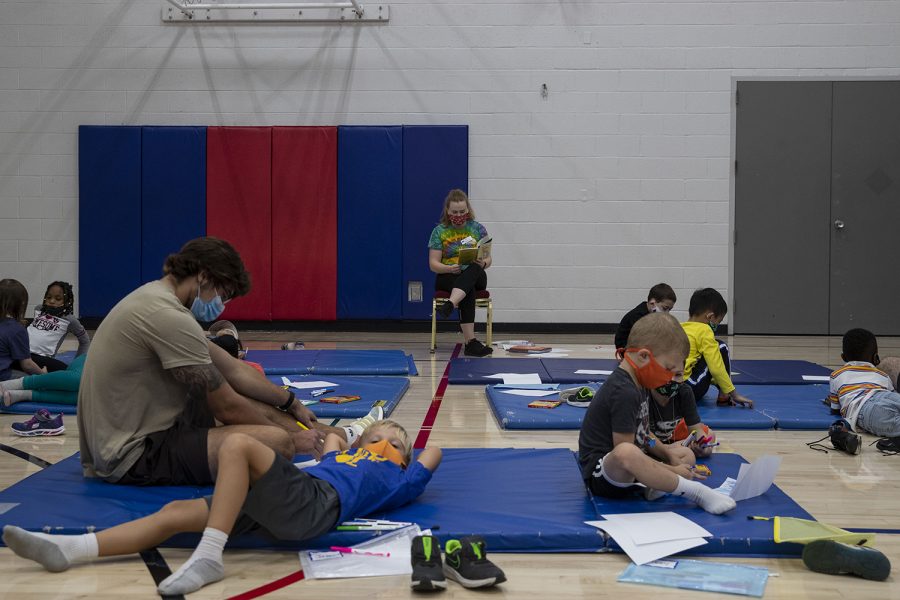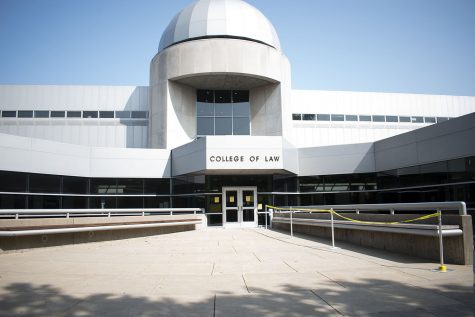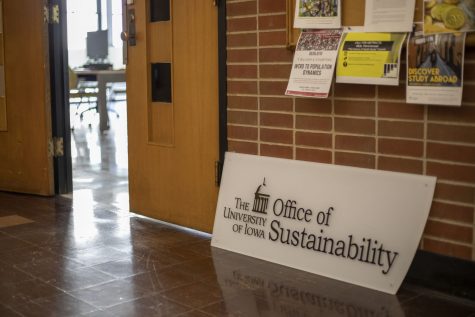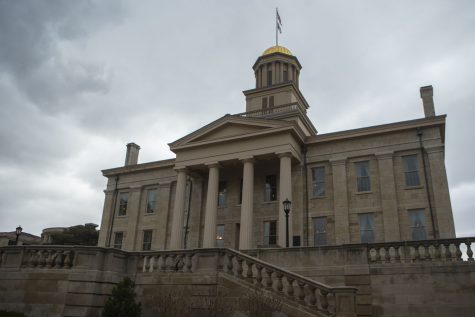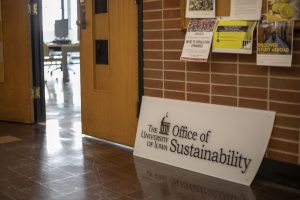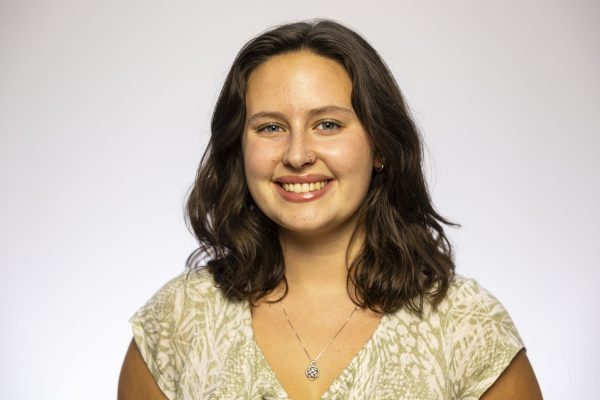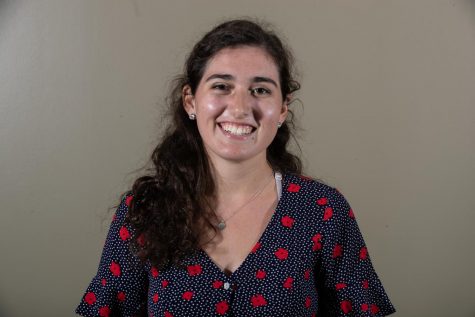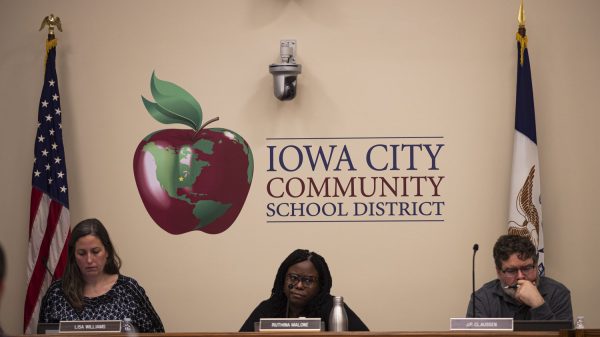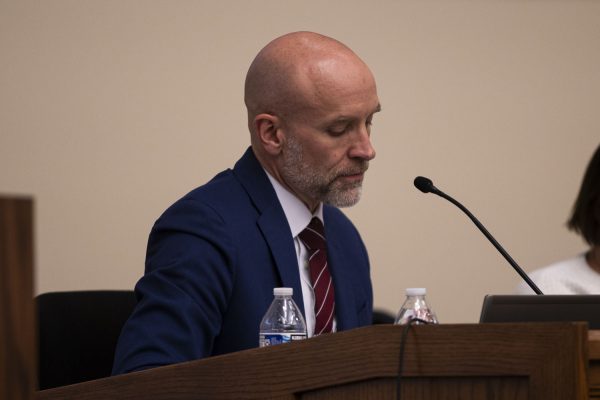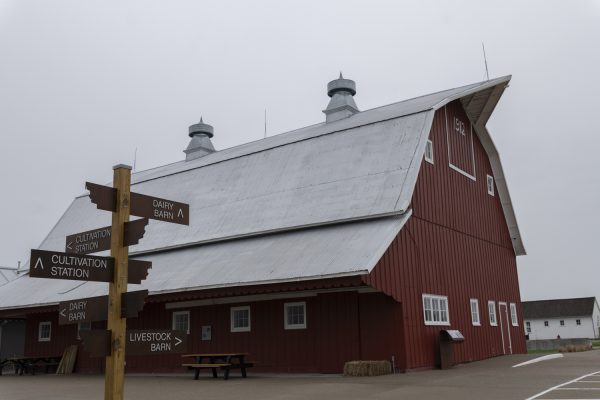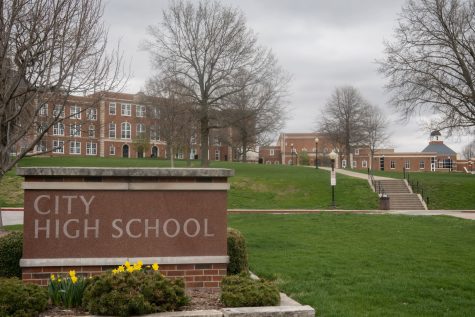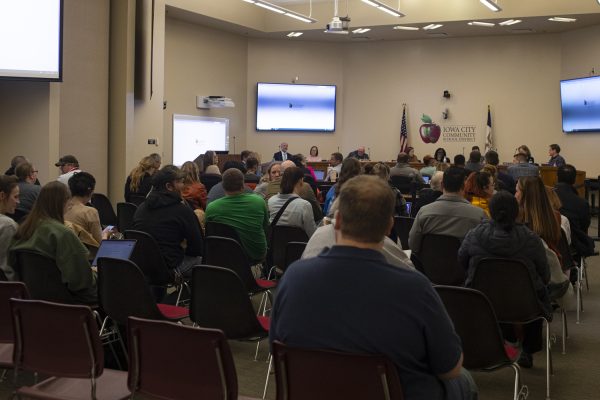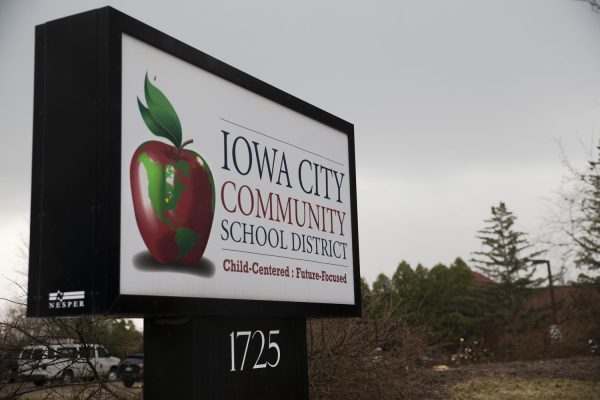Programs and parents work to help Iowa City students learn virtually
Parents, child care providers, and nonprofits are working to provide students with the resources in-person school usually provides as children learn virtually.
Elementary students do their school work at a community nest in the Coralville Recreation Center on Friday, Sept. 18, 2020. This community nest evolved from four Before and After School programs in Coralville through Coralville Parks and Recreation. They will be adding more sites this week, with about 72 students signed up to participate. “We have so many families that had reached out and said we don’t know what we’re going to do,” said Director of Parks and Recreation Sherri Proud.
September 20, 2020
Every night, Iowa City parent Angela Clark reviews the next day’s schedule with her daughter Fiona. In the morning, Fiona gets ready like she would for a regular, in-person day of school, and then heads downstairs to the mini classroom her mother set up for her to attend her first-grade Zoom classes.
The Iowa City Community School District, which began fall classes virtually for all students, announced on Sept. 18 that schools would begin adopting a hybrid learning model on Sept. 28.
Online instruction was only required for high-school students last spring, so the online format required in the first weeks of school this semester was new to both junior high and elementary students.
Clark spoke to *The Daily Iowan* before the school district announced the hybrid transition, and said she was hoping kids would be back in school soon.
“I think that that’s where they need to be, and I think we’re at the point where I don’t think COVID-19 is going anywhere. I really don’t,” she said. “And I think we need to kind of figure out how we can safely do this — and I do think there are ways.”
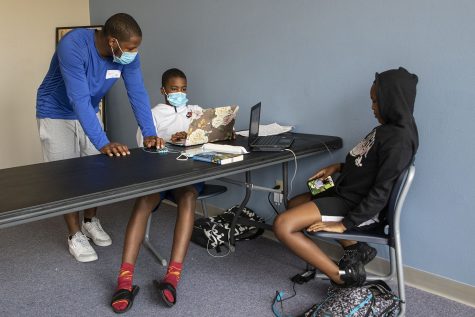
She said teachers are doing their best, but that it’s hard for young kids to stay engaged in online classes. Clark describes her daughter as a calm kid, but even she will get antsy on a 20-minute call.
“She’ll be trying to do the Zoom call and then she’ll start sharpening her pencil, and then it’s just like she’s not interested for a few minutes, so it’s hard,” Clark said. “It’s just such an unnatural thing for this age to just sit them in front of a computer and think that they’re going to pay attention.”
Interim Superintendent for Iowa City schools Matt Degner said engaging young students online has been more difficult than engaging secondary students.
“They have to get a little bit more used to that format, so I think that’s been part of the challenge,” he said.
In the hybrid model, standard-enrollment students will be in school on certain days depending on the group they are in. Group ‘A’ students will attend school in-person on Mondays and Tuesdays, and group ‘B’ will attend Thursdays and Fridays. The groups will alternate attending in-person on Wednesday each week.
RELATED: Iowa City Community School District to adopt hybrid learning model
Clark said she is fortunate to sit with her daughter and help her do her work. Other resources have become available or adapted to meet children’s needs when they cannot be in school.
Local nonprofits have come together to provide services to at-risk youth and address gaps in the Return-to-Learn plan through Neighborhood NESTS (Nurturing Every Student Together Safely). The network began on the South side of Iowa City a few weeks before instruction began.
“As we kind of got those stood up, we realized that there was much greater need outside of that small area of town,” Iowa City Area Chamber of Commerce Vice President Jennifer Banta said. “So we very quickly pulled together a group…and we created this network, where on Tuesdays at noon you could call in through Zoom and we could talk through how the South Side NESTS got launched and help other nonprofits that wanted to really pull together NESTS all throughout Johnson County.”
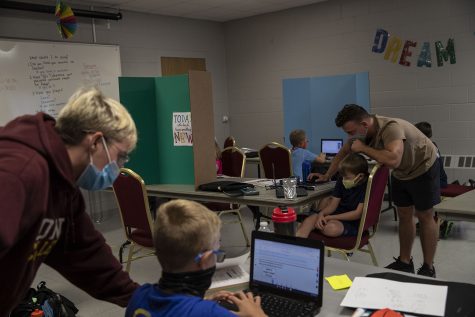
The NEST network is helping provide personal protective equipment, cleaning supplies, lunch programs, and background checks on volunteers. If someone wanted a NEST in their community, Banta said, that person would need to figure out a location and decide what nonprofits they would like to partner with and what resources they want to provide kids.
“Each community is taking a look at what their little micro community needs,” Banta said. “For example, Deb Dunkhase with Open Heartland, she is serving a lot of the residents of mobile home communities, and one of their major challenges was just the language barrier of getting logged on. A lot of them are Spanish speaking, and so she was hosting some in-person, socially distanced workshops prior to the first day of school to kind of make sure that everybody knew how to get logged on.”
Iowa City West High graduate Austen Mattingly said he works at an after-school program at Wickham Elementary School. Before the pandemic, he said, students with parents unable to pick them up right after school were able to stay until about 5:45 p.m. It was free time for the kids, and they weren’t required to do any homework, he said.
Now the program is available all day, and Mattingly said he feels more responsibility to be an educator in addition to being a child-care provider.
Once a teacher presents a concept over Zoom, the kids are on their own to do their work, so they turn to the program staff members for the support a teacher would usually provide in a physical classroom, Mattingly said.
The young kids are also getting used to operating Chromebooks and new online programs, Mattingly said, which can make them frustrated.
“It feels like I am a teacher, when I wasn’t expecting to be,” he said. “So, I feel like I have a lot more responsibility to play in the education of children and their future, which is extremely important,” Mattingly said. “And so, I think that more than ever, the people that work in these programs need to do the best job they can to instead of trying to control the kids, to bond with them and make sure that they are feeling happy and safe.”



